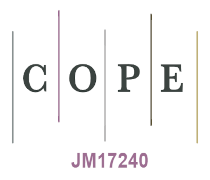Wsparcie społeczne a kontrola poziomu cukru we krwi w cukrzycy typu 2
DOI:
https://doi.org/10.18778/1427-969X.11.05Słowa kluczowe:
diabetes mellitus, social support, HbA1cAbstrakt
Diabetes is an incurable disease. Recently researchers are focusing more often on the role of the social support in diabetes treatment. It seams that support from family and friends plays a big role in the results of the disease treatment. Lack of such support may decrease patients’ treatment motivations. The aim of this study was to estimate the relationship between social support and metabolic control. The group which was examined consisted of 35 people with type 2 diabetes not treated with insulin and 31 who were on insulin. The Social Support Inventory by Saranson and glycosylated hemoglobin (HbA1c) for glycemic control were used in this study. The research indicates that poorer metabolic control was correlated with the lack of social support.
Bibliografia
Albright T. I., Parchman M., Burge S. (2001), Predictors of self-care behavior in adults with type 2 diabetes: an RRNeST study, „Family Medicine”, 33, 5, 354–360
Google Scholar
Anderson R. J., Grigsby A. B., Freedland K. E. i in. (2002), Anxiety and poor glycemic control: A meta-analytic review of the literature, „International Journal of Psychiatry in Medicine”, 32, 3, 235–247
Google Scholar
DOI: https://doi.org/10.2190/KLGD-4H8D-4RYL-TWQ8
Chlebowy D. O., Garvin B. J. (2006), Social support, self-efficacy and outcome expectations: Impact on self-care behaviors and glycemic control in Caucasian and African American adults with type 2 diabetes, „Diabetes Educator”, 32, 5, 777–786
Google Scholar
DOI: https://doi.org/10.1177/0145721706291760
Cohen M., Kanter Y., (2004), Relation between sense of coherence and glycemic control in type 1 and type 2 diabetes, „Behavioral Medicine”, 29, 4, 175–183
Google Scholar
DOI: https://doi.org/10.3200/BMED.29.4.175-185
Epple C., Wright A. L., Joish V. N., Bauer M. (2003), The role of active family nutritional support in Navajos’ type 2 diabetes metabolic control, „Diabetes Care”, 26, 10, 2829–2834
Google Scholar
DOI: https://doi.org/10.2337/diacare.26.10.2829
Filipkowski A., Rabajczyk B. (1992), Zachorowałeś na cukrzycę – przeczytaj, Warszawa
Google Scholar
Gilden J. L., Hendryx M. S. i in. (1992), Diabetes support groups improve health care of older diabetic patients, „Journal of the American Geriatrics Society”, 40, 2, 147–150
Google Scholar
DOI: https://doi.org/10.1111/j.1532-5415.1992.tb01935.x
Griffith L. S., Field B. J. i in. (1990), Life stress and social support in diabetes, „International Journal of Psychiatry in Medicine”, 20, 4, 365–372
Google Scholar
DOI: https://doi.org/10.2190/APH4-YMBG-NVRL-VLWD
Gross R., Olfson M., Carasquillo O. i in. (2005), Depression and glycemic control in Hispanic primary care patients with diabetes, „Journal of General Internal Medicine”, 20, 5, 460–466
Google Scholar
DOI: https://doi.org/10.1111/j.1525-1497.2005.30003.x
Jankowski K. (1975), Człowiek i choroba, PWN, Warszawa
Google Scholar
Lane J. D., McCaskill C. C., Williams P. G. i in. (2000), Personality correlates of glycemic control in type 2 diabetes, „Diabetes Care”, 23, 9, 1321–1325
Google Scholar
DOI: https://doi.org/10.2337/diacare.23.9.1321
Lustman P. J., Clouse R. E. (2005), Depression in diabetic patients: The relationship between mood and glycemic control, „Journal of Diabetes and Its Complications”, 19, 2, 113–122
Google Scholar
DOI: https://doi.org/10.1016/S1056-8727(04)00004-2
Mietzel G. (1998), Wprowadzenie do psychologii, GWP, Gdańsk
Google Scholar
Mogi N., Umegaki H., Hatrori A. i in. (2004), Cognitive function in Japanese elderly with type 2 diabetes mellitus, „Journal of Diabetes and Its Complications”, 18, 1, 42–46
Google Scholar
DOI: https://doi.org/10.1016/S1056-8727(03)00078-3
Munshi M., Grande L., Hayes M., Ayres D. i in. (2006), Cognitive dysfunction is associated with poor diabetes control in older adults, „Diabetes Care”, 29, 8, 1794–1799
Google Scholar
DOI: https://doi.org/10.2337/dc06-0506
Nowakowska J., Sieradzki J. (2000), Zajęcia w psychologicznej grupie wsparcia dla pacjentów chorych na cukrzycę jako forma edukacji diabetologicznej. Podsumowanie 4-letniej interwencji, „Diabetologia Polska”, 7, 4, 238–242
Google Scholar
Oren M. L., Carella M. i in. (1996), Diabetes support group, „Employee Assistance Quarterly”, 11, 3, 1–20
Google Scholar
DOI: https://doi.org/10.1300/J022v11n03_01
Ragonesi P. D., Ragonesi G. i in. (1998), The impact of diabetes on quality of life in elderly patients, „Archives of Gerontology & Geriatrics”, Suppl. 6, 417–422
Google Scholar
DOI: https://doi.org/10.1016/S0167-4943(98)80060-5
Rodin J., Salovey P. (1997), Psychologia zdrowia, [w:] Heszer-Niejodek I., Sęk H. (red.), Psychologia zdrowia, Wydawnictwo Naukowe PWN, Warszawa
Google Scholar
Trento M., Passera P., Tomalino M. i in. (2001), Group visits improve metabolic control in type 2 diabetes: a 2-year follow-up, „Diabetes Care”, 24, 6, 995–1000
Google Scholar
DOI: https://doi.org/10.2337/diacare.24.6.995
Trief P. M., Ouimette P., Wade M., Shanahan P., Weinstock R. S. (2006), Post-traumatic stress disorder and diabetes: Co-morbidity and outcomes in a male veteran sample, „Journal of Behavioral Medicine”, 29, 5, 411–418
Google Scholar
DOI: https://doi.org/10.1007/s10865-006-9067-2
Trief P. M., Grant W. i in. (1998), Family Environment, glycemic control and the psychosocial adaptation of adults with diabetes, „Diabetes Care”, 21, 2, 241
Google Scholar
DOI: https://doi.org/10.2337/diacare.21.2.241
Wen L. K., Parchman M. L., Shepherd M. D. (2004), Family support and diet barriers among older Hispanic adults with type 2 diabetes, „Family Medicine”, 36, 6, 423–430
Google Scholar
DOI: https://doi.org/10.1177/014572170403000619
Westaway M., Seager J., Rheeder P., Van Zyl D. (2005), The effects of social support on health, well-being and management of diabetes mellitus: A black South African perspective, „Ethnicity & Health”, 10, 1, 73–89
Google Scholar
DOI: https://doi.org/10.1080/1355785052000323047
Whittemore R., D’Eramo Melkus G., Grey M. (2005), Metabolic control, self-management and psychosocial adjustment in women with type 2 diabetes, „Journal of Clinical Nursing”, 14, 2, 195–203
Google Scholar
DOI: https://doi.org/10.1111/j.1365-2702.2004.00937.x
Pobrania
Opublikowane
Jak cytować
Numer
Dział
Licencja

Utwór dostępny jest na licencji Creative Commons Uznanie autorstwa – Użycie niekomercyjne – Bez utworów zależnych 4.0 Międzynarodowe.








